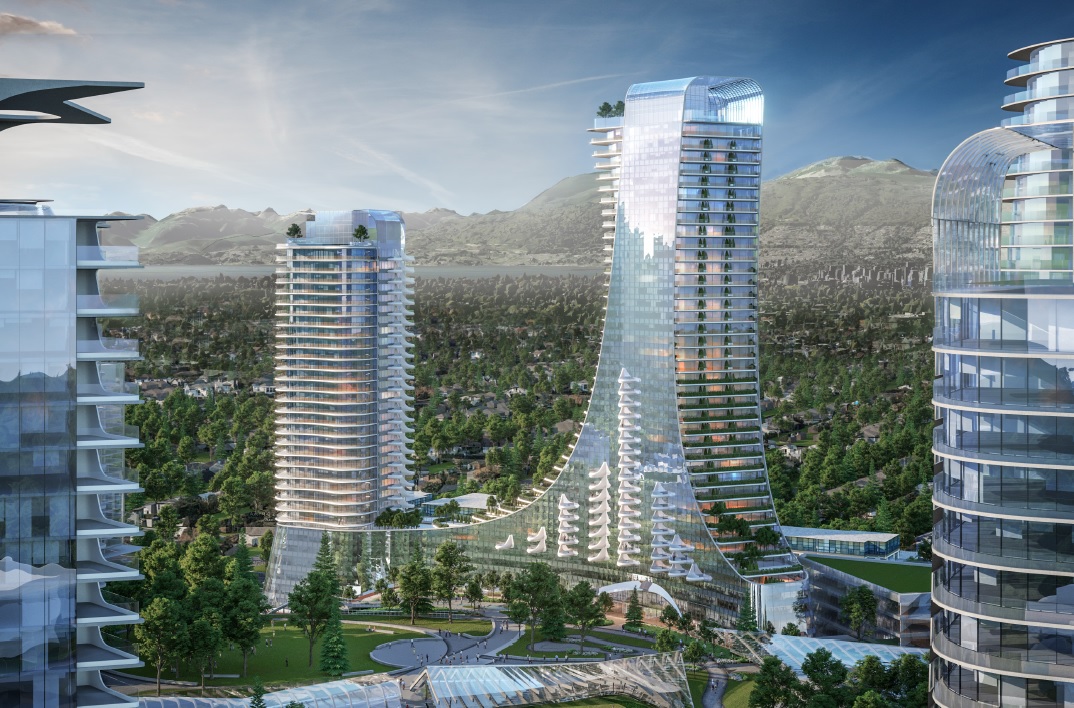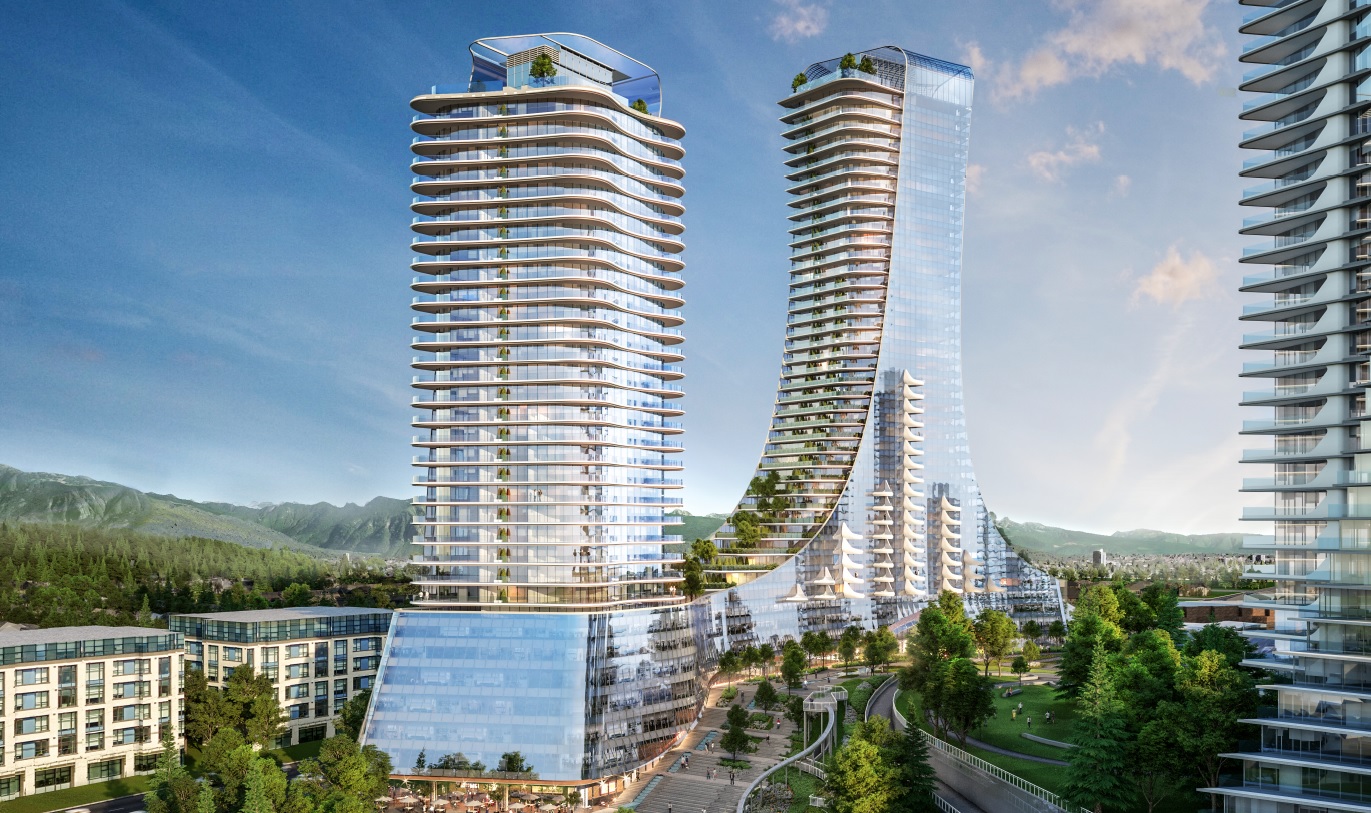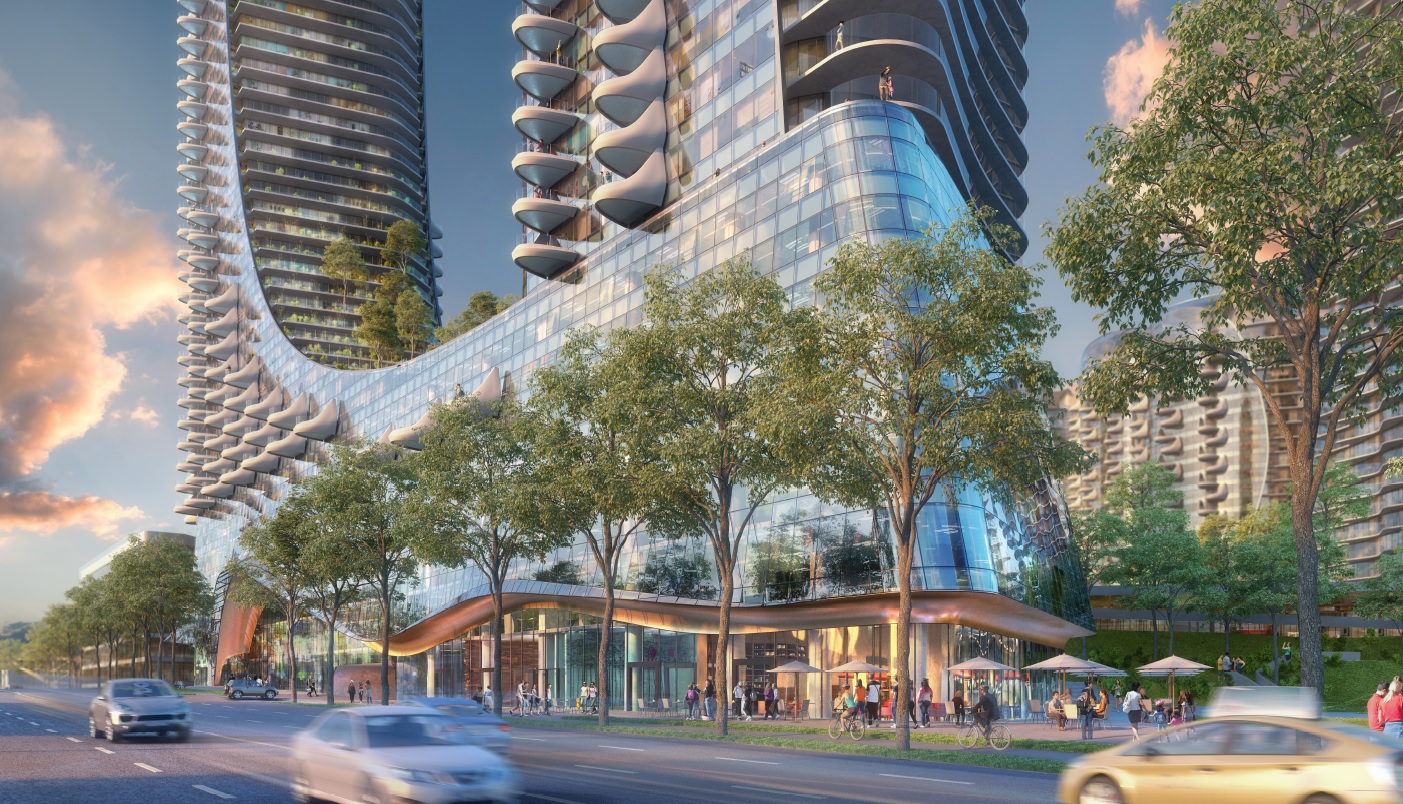First Phase of Oakridge Redevelopment to Include Two Towers, 504 Units

A development application has been submitted for the first phase of the Oakridge Centre redevelopment, for which the overall development plan was approved earlier this year.
The first phase will consist of two towers (Towers 3 and 4), and a portion of the future park. Details include:
- one 32-storey tower (Building 3) and one 42-storey tower (Building 4)
- 504 market condo units;
- 212 one-bedrooms, 260 two-bedrooms & 32 three-bedroom units;
- a podium containing retail/office Uses (Levels P1 – 6);
- 173,113 SF of office space in Building 3;
- all over three levels of underground parking;
- a portion of the future 9-acre Park;
- a total density of 0.74 FSR;
- a maximum geodetic building height of 189.38 m for Building 3, and 217.28 m for Building 4.
The application describes the design rationale:
“Skin & Bones Concept
The metaphor of skin and bone is the ordering principle for the Architectural Tectonic. It is born from the idea of draping the Mall with a landscaped Park. The act of wrapping or revealing becomes architecturally significant when defining the relationship between the landscape and buildings, as an approach to breakdown the mass of the buildings, as a passive solar strategy to have the buildings respond to their environment, and for providing wayfinding and programmatic identity.
Skin as Veil
Expanding upon the skin & bones concept, the skin is treated like a fine light fabric that wraps the buildings in a unifying veil. It is both delicate and protective, and is expressed architecturally as a plane of Curtain Wall that extends past the building itself in vertical and horizontal fly-bys. The Curtain wall design is reduced to its essence of transparent glass using 4 sided SSG, grey sealant and gaskets, light colored shadow boxes and only horizontal spandrel. The extent of the wrapping of the veil is related to the buildings orientation, as the veil opens toward the light, allowing the deep recessed terracing of the bones to shade the spaces within.”
The architect for the project is Henriquez Partners Architecture.




